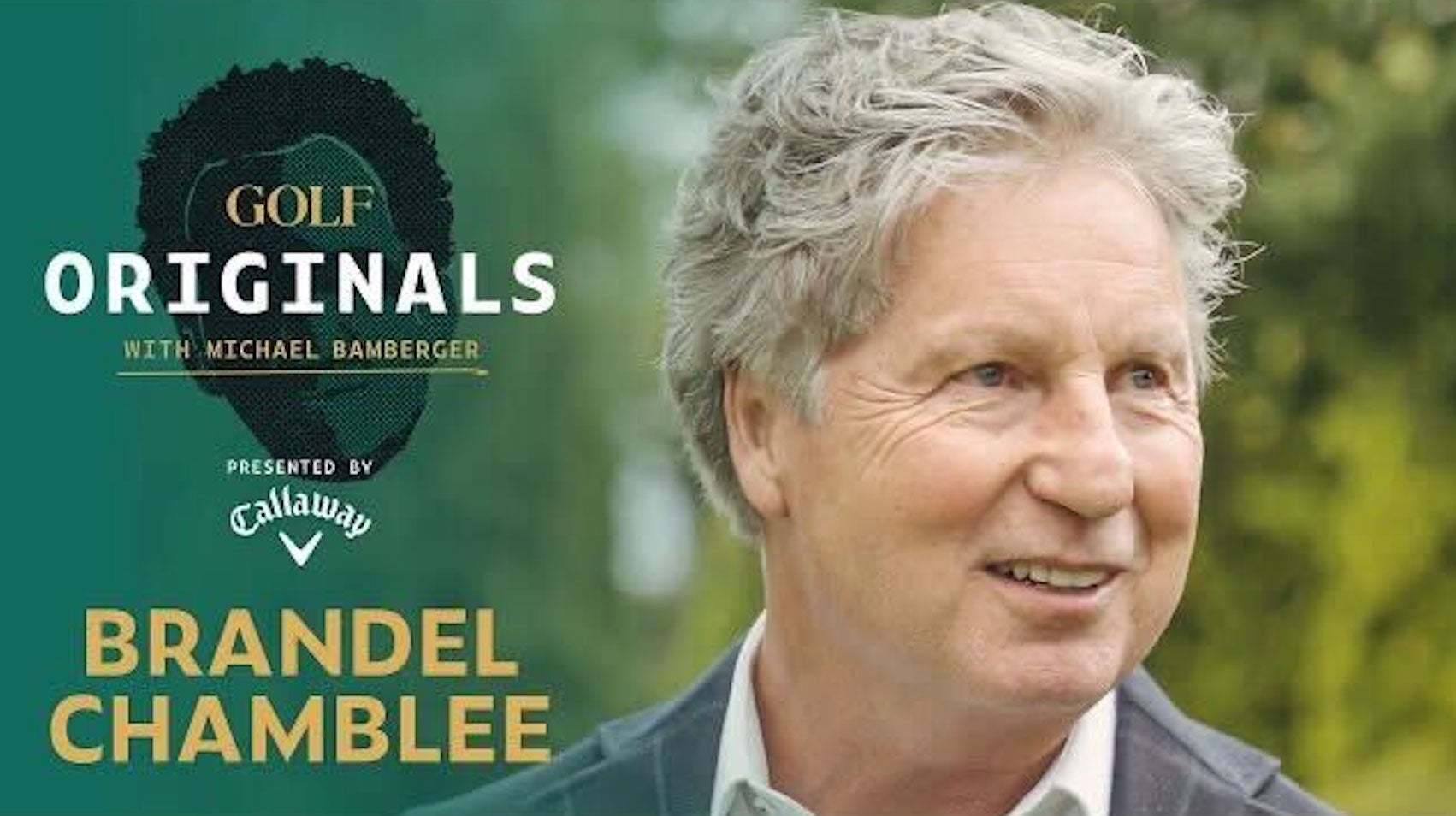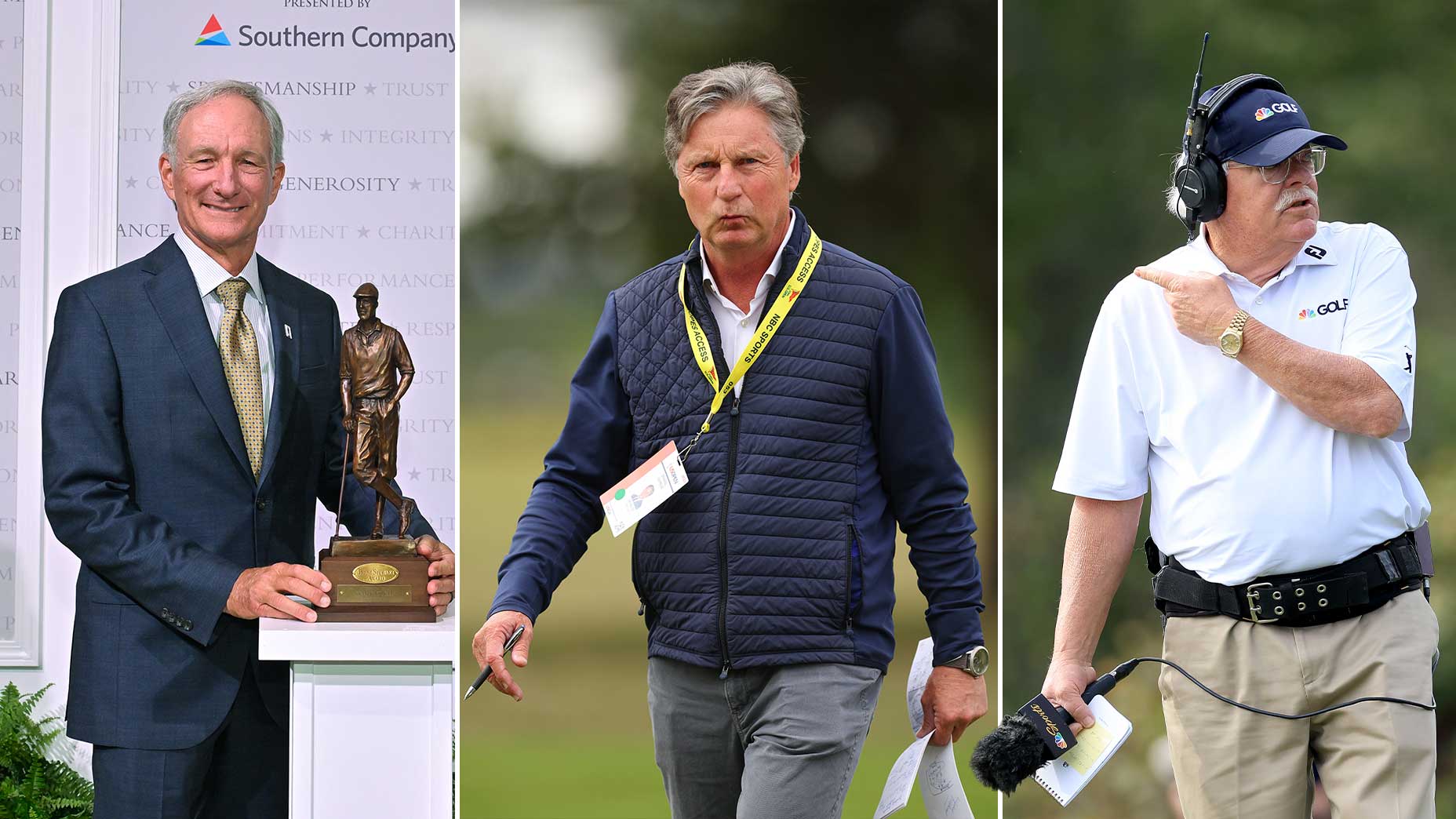Golf
Brandel Chamblee is a walking, talking U.S. Open encyclopedia | GOLF Originals

I am not, at all, an expert on Brandel Chamblee’s day-to-day schedule, but I can tell you something about his whereabouts from mid-May through the end of Memorial Day, and I share them here because they’re so telling.
Chamblee, the NBC Sports golf analyst, who will be working this week’s U.S. Open from a perch above Pinehurst’s 18th green, was in Louisville for the PGA Championship. He went home in Scottsdale for a few days and then went on brief but irresistible boys-will-be-boys multi-state golf trip. He returned home again for a few days, woke up early on Memorial Day and flew from Phoenix to Philadelphia, en route to the Marriott in downtown Lancaster, Pa., and U.S. Women’s Open at the Lancaster Country Club. But before heading there, my colleague Darren Riehl (the producer of this series) and I took Brandel on an afternoon-into-evening tour of some U.S. Open garden spots, Philly-style.
There’s a lot you can take from that two-week snapshot but let me suggest this: The man is on the front door of 62, he’s been immersed in the game for almost 50 years — and my sense is golf has never meant more to him than it does now.
Our first stop was the Ivy Hill Cemetery in Philadelphia. We went there to see Willie Anderson’s gravesite. You may know that Willie Anderson was a Scot who won four U.S. Opens. I told Brandel that the boxing legend Joe Frazier was also buried at Ivy Hill. He knew. Brandel told me that the tennis legend Bill Tilden was buried at the Ivy Hill. I didn’t. The things this guy knows.
darren riehl/GOLF Originals
Brandel talked about Anderson with such intensity you might have thought Willie A. was a golfer Chamblee saw as schoolboy golfer in Texas. Anderson won his Opens in 1901, ’03, ’04 and ’05. It frustrates Chamblee that so little is known about Anderson’s swing, to say nothing of his GIR stats.
Chamblee is a golf original, and a GOLF Original, the fourth in our monthly lineup that, to date, has brought you David Feherty in March, Tom Doak in April, Mike Whan in May and now Chamblee. Nobody has ever combined an encyclopedic knowledge of golf history with an ability to analyze swings and data as Chamblee does. If you want to know more about modern golf and how it is played, you really should read Brandel, listen to Brandel and watch Brandel.
“Golf gets in your blood,” he says here, in this 25-minute GOLF Originals mini-doc video that shows sides of Brandel Chamblee you don’t get to see in his regular Golf Channel appearances. “You can’t get away from it,” Chamblee says here of the game. You can’t get away from it, and Chamblee doesn’t want to, anyhow. His May itinerary, and everything he shares in this video, will tell you that.
We went from Anderson’s gravesite to Merion’s 13th tee to the fairway at the Philadelphia Country Club where Byron Nelson holed a 1-iron on his way to winning the 1939 U.S. Open. Chamblee knew Byron Nelson. He did not know the Philadelphia Country Club, with its hilltop tees and in-the-valley greens. (The stroke-play portion of the 2026 U.S. Amateur will be played there and at Merion.) You could sense Brandel’s joy, walking the course where Nelson won his lone Open and Sam Snead blew his best Open chance with a fourth-round triple bogey.
I love the fact that Chamblee made our rounds in Philadelphia wearing a tailored blazer, a nod to the manners of some of his forebears, most notably the pro Chamblee most brings to mind, the urbane Dave Marr, a fellow Texan with Manhattan sensibilities.
Brandel knows how many U.S. Opens Snead would have won or played off for the title had he shot last-round 69s. He knows because he looked it up and shared it with us as we took in the Country Club. A kid played by us. His swing speed was astonishing. His grip was, too — wildly strong. Chamblee watched with something like wonder.
Brandel Chamblee has strong and informed opinions about LIV Golf, the proposed golf-ball rollback, the sanctity of golf’s rulebook, and we, as ordinary golf-on-TV viewers, are lucky to have them. But what we see here is the roots of it all, his deep, great immersion in this game.
“Every day to wake up, and have some purpose, that keeps you going?” Chamblee says. “It’s a gift.”
Chamblee has said a million of words over various broadcasts over the past 20 or more years. He might say a million more. Those two sentences, shared with us on a fairway at the Philadelphia Country Club, deserve to live forever.
It was past 8:30 p.m. when Chamblee left Philadelphia Country Club, and, after a roadside dinner as he drove west to Lancaster, closing in on midnight on Memorial Day when he made it to his hotel. A few days later, I saw him at the U.S. Women’s Open. I apologized for how long we had kept him. “I enjoyed it,” he said. I don’t think he was being polite. He played in six U.S. Opens. He’s been part of a broadcast team on another 20 or more. He had never been to Willie Anderson’s gravesite. He had never been to the Nelson plaque. He was learning stuff. He’s always learning stuff. This week, he’ll put that knowledge to good use.
Michael Bamberger welcomes your comments at Michael.Bamberger@Golf.com




)






